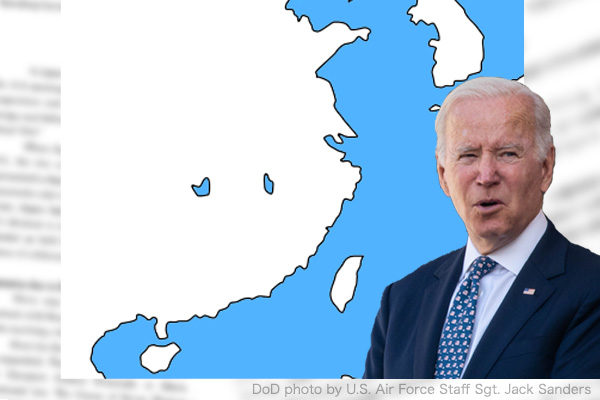On October 12, the U.S. National Security Strategy (NSS) was released, coming up with a newly organized concept of “integrated deterrence.” It is composed of five pillars: integration across domains, integration across regions, integration across the spectrum of conflict, integration across the U.S. government, and integration with allies and partners.
Behind the integrated deterrence, however, the roles of pure military power should not be underestimated.
A major factor behind the failure to deter Russia’s aggression against Ukraine was U.S. President Joe Biden’s statement late last year that clearly excluded an option of direct U.S. military involvement. Biden should have left the option vague.
As for North Korea that is mentioned only a little by the latest NSS, the former U.S. President Donald Trump’s so-called “maximum military pressure” led Pyongyang to accept denuclearization talks with Washington.
Unacceptable decision to give up on SLCM-N development
“Nuclear deterrence remains a top priority for the Nation and foundational to integrated deterrence,” the NSS says in a section titled “Modernizing and Strengthening Our Military.”
In a FY2023 defense budget statement, however, the Biden administration has cancelled the development of a Nuclear Sea-Launched Cruise Missile (SLCM-N) on which the Trump administration decided to develop in its Nuclear Posture Review (NPR) in 2018.
Given that Chinese President Xi Jinping indicated his policy of enhancing nuclear forces at the party congress on October 16, that North Korea has launched missiles on an almost daily basis in what it claimed military drills by its tactical nuclear operation units, and that Russia has threatened to use tactical nuclear weapons in Ukraine, a trump card to deter a nuclear attack by China, Russia or North Korea is the U.S. SLCM-N. When considering national security of Japan as a U.S. ally, therefore, we cannot but doubt the Biden administration’s intent of extended deterrence.
Among the current U.S. military leaders, Joint Chiefs of Staff Chairman Army Gen. Mark Milley, U.S. Strategic Command Commander Adm. Charles Richard, and then U.S. European Command Commander Air Force Gen. Tod Wolters have raised opposition to Biden’s cancellation of the SLCM-N development.
Will integrated deterrence work in Taiwan contingency?
In the 1991 Gulf War, the U.S. formed multilateral forces to help Kuwait, which was not a U.S. ally, and fight against Iraq. In the current Ukraine war, however, the North Atlantic Treaty Organization (NATO) centered by the U.S. has not opened the battlefield with Russia to help Ukraine. U.S. responses to the two attempts to change the status quo by force have differed because Iraq was a non-nuclear state while Russia is a nuclear power.
Biden has vowed many times to intervene militarily if China as a nuclear power invades Taiwan. I would like to watch whether “integrated deterrence” without SLCM-N would work.
Fumio Ota is a councilor and a Planning Committee member at the Japan Institute for National Fundamentals. He is a retired Vice Admiral of Japan Maritime Self-Defense Force.


